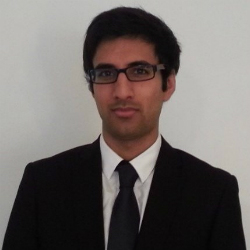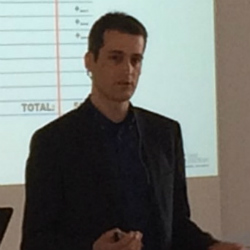
Lotte Card
Lotte Card offers an AI-enhanced customer experience via smarter chatbots. For many consumers a credit card is more than a piece of plastic. It represents accessibility. In an increasingly cashless world, Lotte Card aims to offer:
- not only exemplary financial access to its customers
- memorable service.
With the largest distribution network in Korea, the credit card company serves millions of customers. To meet the needs of those customers in real-time, Lotte Card uses SAS to provide the intelligence which sits behind the chatbot solutions used to serve customers and automate call centre employee workloads.
For a morphologically complex language like Korean, chatbot accuracy often suffers. It is unable to match too many customer queries. Through a combination of machine learning and natural language processing (NLP), Lotte Card’s developers with SAS designed a smarter chatbot.
By taking advantage of its existing unstructured data and a custom thesaurus, Lotte Card used SAS machine learning and NLP capabilities to analyse conversations. This greatly improved the contextual linguistic rules with the underlying AI technology enabling Lotte Card’s chatbot to handle more advanced tasks such as updating a customer’s personal information, immediate settlement of a customer account, and card application services.
According to Lim Sung-wook, Big Data Team Leader at Lotte Card: “The AI techniques that SAS offers such as text analysis, machine learning and automation have allowed us to build a more intelligent, more evolved chatbot. Since implementing it, our call center team can provide faster customer service with almost no waiting time. Ultimately this gives Lotte Card the advantage of more diverse customer benefits and improved customer satisfaction.”
Notilyse
Notilyze and SAS have worked on a Dutch smart-city initiative. This applies predictive analytics for IoT in the Drecht Cities (Drechtsteden) which has invested IoT and smart technologies for more than 15 years.
VitrumNet – a digital-infrastructure network of 26 municipalities, schools and healthcare organisations – embodies this smart-city initiative. Through VitrumNet, the Drecht Cities are pursuing a digitally connected region with Dutch analytics startup Notilyze adding advanced analytics (with help from SAS).
Through a customised AI solution – one which includes visualisation, optimisation, forecasting and machine learning:
- the Drecht Cities can analyse streaming data from sensors across the network
- connected residents and businesses can measure water, air or energy (with sensors monitoring things like temperature, flow, carbon dioxide and power)
The resulting sensor data, when combined with other available data sources, feeds machine learning models.

Colin Nugteren, Notilyze’s founder and CEO said: “The marriage of IoT data and artificial intelligence is powering the Drecht Cities.
“Our work with SAS allows us to analyse the constant flow of information quickly to better advise the smart city project. We’re able to offer insights that once seemed unfeasible – from forecasting future temperature or water quality, to predicting device failure so that the region can ensure preventive maintenance.”
CHU de Montpellier
In hospitals, data is invaluable. As a new patient details his or her symptoms to a doctor, that data is captured – often manually. In an ideal world this requires analysis before diagnosis. In urgent situations, such data may undergo analysis by multiple physicians, technicians and other healthcare experts.
Centre Hospitalier Universitaire (CHU) de Montpellier is transforming its hospital operations and patient care by making data more exploitable. The underlying tools come from SAS AI solutions.
Located on the southern coast of France, this long-time SAS customer exploited data visualisation for decades to:
- improve hospital activity reports, patient flow and care pathways
- assist staff.
But the hospital was only capturing structured data for analysis. By implementing machine learning (and deep learning) CHU de Montpellier is starting to take advantage of its previously unused unstructured data, such as medical documents and nurse reports. By doing this its goal is to produce models which can:
- analyse bigger, more complex data sets
- deliver faster, more accurate results.
Examples of projects include using clinical notes and medical reports to improve patient screening and to automatic encoding of diagnoses and treatments using standard classifications. Caroline Dunoyer-Ortiz, Head of the Medical Information Processing Unit at CHU de Montpellier said: “The hospital housed an enormous amount of data that was simply untapped. Accessing this data and analysing it quickly with SAS AI solutions will allow us not only to better evaluate and treat our patients, but also to increase our research potential, helping our professionals in their day-to-day activities.”
EDP and AI power in Portugal
Energias de Portugal (EDP) is an energy utility and a leader in renewables. With more than 11,000 employees, EDP is Portugal’s largest electricity producer, distributor and supplier.
EDP has long relied on SAS analytics and AI solutions across multiple sectors of its business. One of those core companies, EDP Distribuição, is now building
- business-intelligence dashboards
- predictive-maintenance algorithms
- forecast and revenue assurance models.

The objective is to provide more reliable and efficient generation and distribution of electricity in Portugal. “Some say that data is the new oil, the lifeblood of the global economy,” said Yasin Ahmad, Data Analyst at EDP Distribuição.
“At EDP, we think that analytics and AI from SAS are the refineries, giving us the tools for transforming raw data into value, thus providing better, more customisable and streamlined service.”
Shop Direct offers ‘snap’ credit decisions via AI
With >4M customers, Shop Direct is a digital retailers in the UK and Ireland. Popular brands include:
- Very.co.uk
- Littlewoods.com
- VeryExclusive.co.uk.
The retailer offers customers multiple ways to pay for purchases, including an in-house credit card. With SAS, Shop Direct has added AI to its credit-scoring capabilities. This enables real-time decisions.
By rapidly speeding up the approval or rejection of credit-card applications, Shop Direct:
- delivers quick credit to customers during the buying process
- avoids unnecessary financial risks for the company
- builds customer loyalty while improving credit risk management.
“By moving away from traditional credit risk data sets and algorithms to real-time decisions with AI, Shop Direct puts the customer at the heart of everything with personalised credit offerings,” said Nick Carrel, Head of Decision Analytics at Shop Direct. “In a fast-paced retail market, SAS plays a crucial role in helping us stay at the forefront of technological and customer-driven change.”
Enterprise Times: what does this mean

There is one school of though which considers AI a menace to humanity (see, for example, Elon Musk). There is another which applies AI in practice.
As described above, these five ‘organisations are actively implementing AI solutions, enabled by SAS tools and software. They demonstrate, in their very different ways how AI need not be an evil.


























